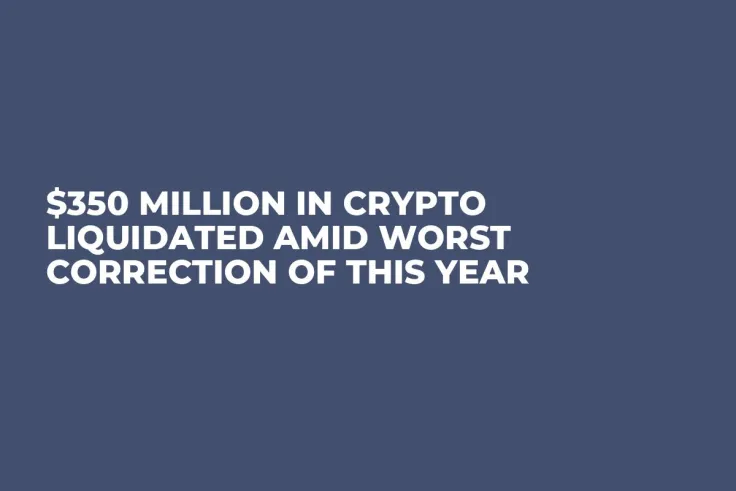
Disclaimer: The opinions expressed by our writers are their own and do not represent the views of U.Today. The financial and market information provided on U.Today is intended for informational purposes only. U.Today is not liable for any financial losses incurred while trading cryptocurrencies. Conduct your own research by contacting financial experts before making any investment decisions. We believe that all content is accurate as of the date of publication, but certain offers mentioned may no longer be available.
The crypto market has recently seen one of its most devastating corrections of the year, resulting in roughly $350 million worth of longs being liquidated. Over a brief yet tumultuous span of two-three days, the majority of altcoins saw their values plummet by an alarming 30%. The descent into market turmoil has left investors reeling, trying to make sense of the rapid erosion of their portfolio value.
In addition to the heavy losses borne by those betting on a bullish market, short sellers too were met with harsh reality. Approximately $50 million in short positions were liquidated, most likely opened at what seemed to be local price bottoms. However, the market proved its unpredictability once again, and a significant price reversal caught short sellers off guard, leading to substantial losses.

The severity of losses varied across altcoins, with some suffering more devastating drops than others. Cardano (ADA) found itself at the harsh end of the scale, with a whopping 40% price reduction at its lowest point. Binance Coin (BNB) was not far behind, enduring a 23% hit. XRP and Ethereum (ETH) showed marginally better resilience, losing 11% and 7% of their values, respectively, but the fall was significant nonetheless.
Adding to the chaos, assets that were recently labeled as "securities" by the SEC in their complaint against Coinbase suffered even more. The additional layer of regulatory uncertainty seemed to amplify market volatility and push the prices of these specific assets even lower.
This market correction stands as a stark reminder of the inherent risk associated with cryptocurrencies. Despite the relatively neutral reaction of retail investors to the SEC's list of digital assets that are now considered securities, institutional investors are still going to sell most of their holdings, causing continuous pressure on the market.


 Dan Burgin
Dan Burgin Vladislav Sopov
Vladislav Sopov